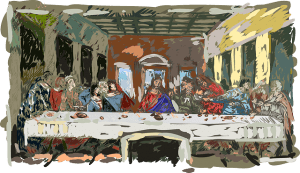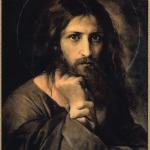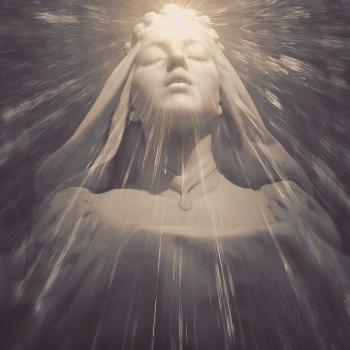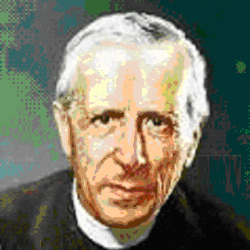Introduction
This is the first of four essays under the above title. This first one will ask, “Who’s counting the sacraments?” In essay #2, I want to talk about “The Sacraments of Birth and Before.” The third one will deal with “The Sacraments of the Breathing Body.” And the fourth one will examine “The Sacraments of Death and Thereafter.”

Who’s counting the sacraments?
Today I am 71 years and three weeks old; which means that I have lived for 25,922 days; and each one of them seems like it’s a different incarnation. And, in a sense, it is. In every 24-hour period, every single one of us has a time, in between dreaming and waking, when we are in a deep, dreamless sleep; there is no notion of the self, there are no memories and the senses aren’t operating. I don’t think, I don’t feel, I don’t know who I am, or where I am, or even if I am. And, then, the dreams pick back up, and we go online; and, then, we wake up in the morning and our senses go online, and our memories come back to us, and our sense of separate self is there and we continue the journey.
But each day, in some sense, marks a separation point; each day represents an incarnation; each day represents some kind of a sacrament where you re-initiate the journey of your evolution into Christ Consciousness or Buddha Nature.
So, in fact, each day is a milestone, a way station on the road from God’s womb – where we got conceived – to God’s heart – where we wind up. They are sacraments. Sacraments are the sacred understandings and celebrations of the milestones and the way stations on the road. How do you count the sacraments? It depends who you are. If you are a materialistic scientist, there are no sacraments, because there is no such thing even as consciousness. Free will is an illusion. And, basically, we are just taxis for neurons that fire indiscriminately and randomly; there is no purpose to life; and there certainly isn’t any sacredness to life. So, there are no sacraments whatsoever, if you are a materialistic scientist.
If you are a strict Protestant, you have been taught that there are two sacraments in life, both instituted by Jesus, and they are Baptism and Communion. Now, that is not to say that there aren’t any other sacred moments in the Protestant thinking. There are, but as Protestants define “sacrament” there are only two.
Catholicism believes that there are seven. They are Baptism, Confirmation, Penance, Eucharist, Matrimony, Ordination and Extreme Unction (or the Anointing of the Sick.) And Shakespeare had the same notion, that life proceeds in seven stages. There’s the infant, the schoolboy, the lover, the soldier, the judge, the retiree and, finally, the person who is preparing to die.
The great developmental psychologist, Erik Erikson, claimed that there are eight great stages to the human trajectory. So, in his thinking that would be like eight sacraments.
But, perhaps, every single day is a new incarnation and, therefore, a new sacrament. And, so, today, I’ve celebrated 25,922 sacraments in this journey. But, when I think about it even more deeply, every breath is a new beginning. Every time you take a breath in and out, you are literally exchanging millions of molecules of matter with every living thing around you. Typically, when we’re busy, we breathe about 18 times a minute. When we are meditating we can get it right down to about three, or even two, times a minute. So, if you are a fairly easy-going person, let’s say you breathe 10 times a minute. That’s 600 times an hour, 24 hours a day. So, by now, I have breathed 373,276,800 times. Is each one of these a sacrament, a new beginning?
So, it just depends on who’s counting. But, I want to compromise, today, somewhere between 373,276,800 and zero, I’m going to pick the number 27. I have been thinking a lot about this. I believe there are 27 great milestones in the journey from God’s womb, where we start, to God’s heart, where we finish up.
There are four great hinge sacraments in these 27. The first hinge is when we emanate from Source, when God self-fractures. The last great hinge is when we re-unite, when we get re-absorbed into the Unconditional ALL. They are the two great hinges and they have to do with Spirit. Spirit is the force that allows us to come into being, as souls, and to merge with God finally. And then, at the other end of the scale, you have the hinge of breath. The first breath you take, when you’re born, signifies incarnational life; and the last breath you take, as you die is, the end of the incarnational phase. But, it’s interesting that all four of these hinges have to do with Spirit because, in many languages, the notion of breath and spirit and life are a single word. In Hebrew, the word is ruach, which means the breath of God, it means the spirit of God, it means to be alive. In Greek, we use the word pneuma. In Kiswahili, we have the word pepo. And, in English, we use the word inspiration; to inspire, means to take Spirit in, or to be alive, or to be creative or to breathe in; and to expire means to die, or to let go of Spirit. So, the Breath or Spirit is the key to these four great hinges of the entire journey. Over the next three essays, I will follow this trajectory from Source to incarnation and back.












